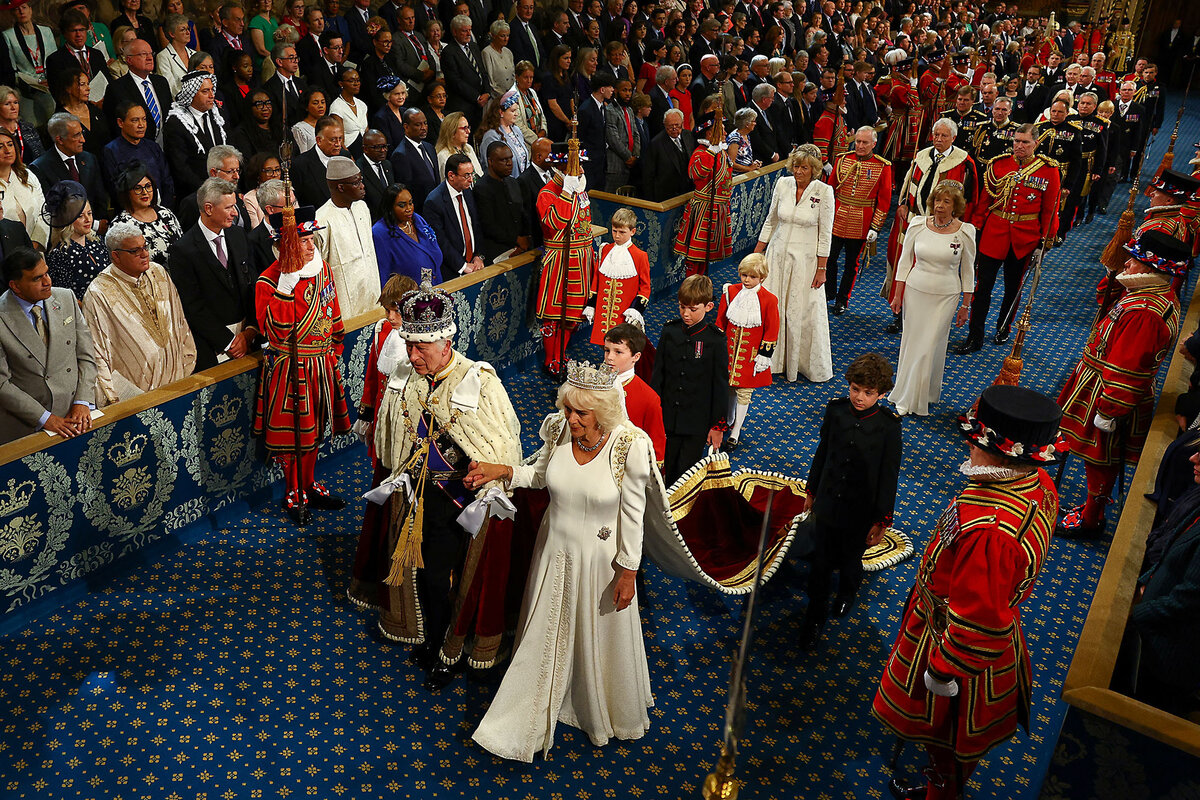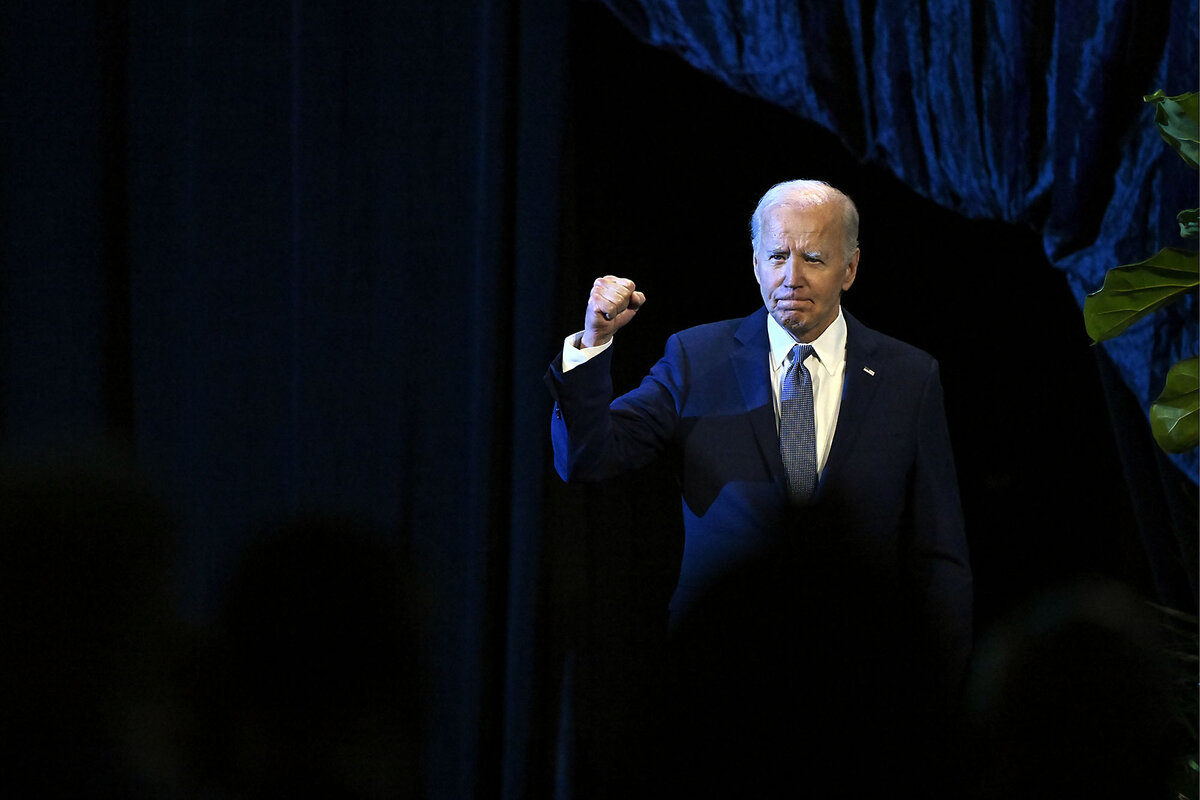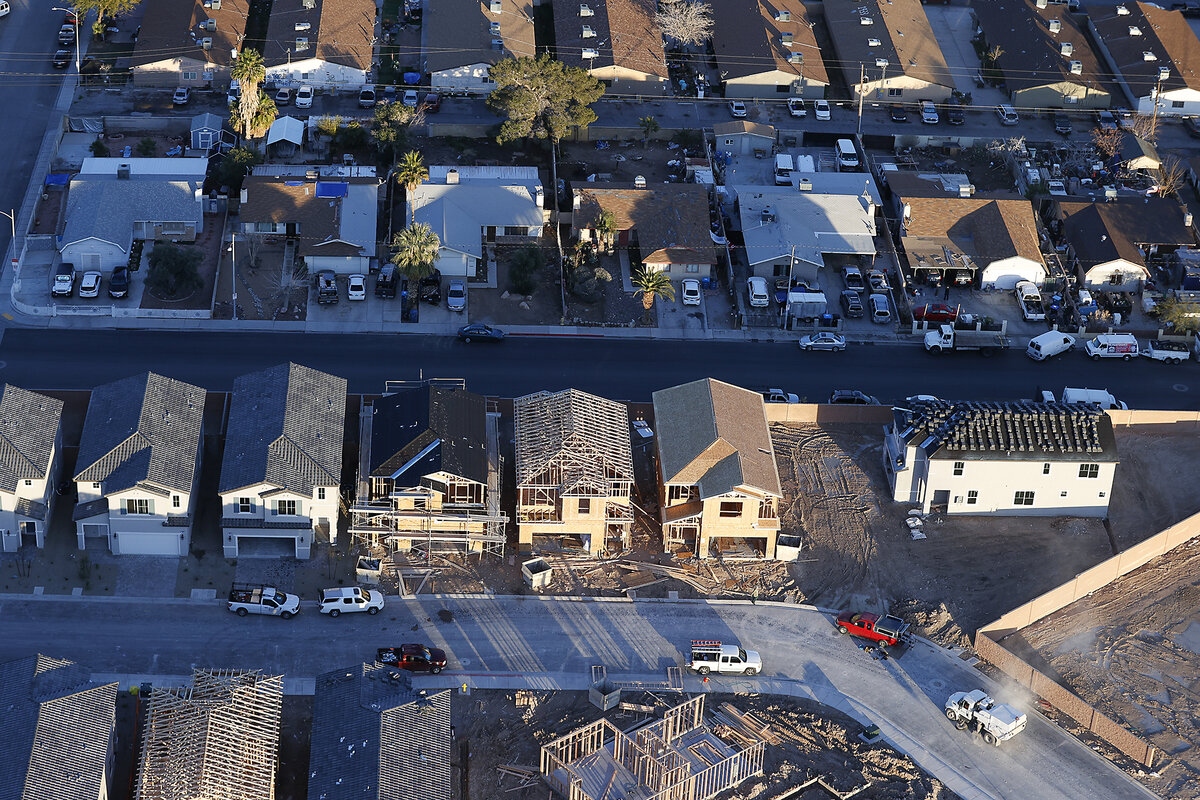After a year in which former President Donald Trump faced prolonged legal battles, and GOP divisions wreaked havoc in Congress, Republicans are reveling in a remarkable sense of unity.

Why is Christian Science in our name?
Our name is about honesty. The Monitor is owned by The Christian Science Church, and we’ve always been transparent about that.
The Church publishes the Monitor because it sees good journalism as vital to progress in the world. Since 1908, we’ve aimed “to injure no man, but to bless all mankind,” as our founder, Mary Baker Eddy, put it.
Here, you’ll find award-winning journalism not driven by commercial influences – a news organization that takes seriously its mission to uplift the world by seeking solutions and finding reasons for credible hope.
Explore values journalism About usMonitor Daily Podcast
- Follow us:
- Apple Podcasts
- Spotify
- RSS Feed
- Download
 Mark Sappenfield
Mark Sappenfield
When I first heard about the assassination attempt against Donald Trump, I was deeply shaken. I might be living abroad, but the United States is my home. What was happening?
Well, I tend to process by writing. So I wrote. What came turned out to be something of a capstone of some of the larger insights I feel I’ve gained about the U.S. and the world in eight years of looking through the lens of being The Christian Science Monitor’s editor. It is too long to put in this space, but I share it in the hope that it can be some small contribution in fortifying all our highest natures moving forward.
Already a subscriber? Log in
Help fund Monitor journalism for $11/ month
Monitor journalism changes lives because we open that too-small box that most people think they live in. We believe news can and should expand a sense of identity and possibility beyond narrow conventional expectations.
Our work isn't possible without your support.
Today’s stories
And why we wrote them
( 6 min. read )
Today’s news briefs
• Climate change funds: Tens of millions of dollars raised by a landmark climate law in Washington state will go to Native American tribes that are at risk from climate change.
• Bangladesh protests: Authorities say that at least six people were killed on July 16 in violence across the country as student protesters clashed with pro-government student activists and with police.
• ISIS attack: Authorities in Oman say several gunmen burst into a Shiite mosque and opened fire, killing six people and wounding nearly 30 more.
• Bridges: U.S. federal transportation officials are providing $5 billion to replace or improve aging bridges in 16 states.
( 5 min. read )
Following an assassination attempt on Donald Trump, calls have risen for national unity and less incendiary political rhetoric. Yet a key to Democrats’ election strategy is still to point to former President Trump as a threat to democracy.
( 12 min. read )
In Nevada, low housing stock and inflation woes could determine the presidential election. Part of a series on the issues that may tip key swing states: Arizona, Georgia, Michigan, North Carolina, Pennsylvania, and Wisconsin.
( 5 min. read )
As China’s top leaders deliberate over the country’s economic future – including how to tackle inequality – new research shows regular people’s attitudes toward the economy are shifting, with fewer trusting that hard work will lead to prosperity.
Books
( 3 min. read )
In a quest to understand her roots, a musician digs into her Jewish grandfather’s past, and unearths a story of courage and endurance in wartime.
The Monitor's View
( 3 min. read )
Long before he became the Republican vice presidential candidate, James David Vance was a critic of Donald Trump. A graduate of Yale Law School, he was also seen as part of the very elite he finds as a cause of America’s problems. To explain these apparent contradictions, the first-term Ohio senator, popularly known by his initials J.D., turns to an unlikely source.
He cites a quote from the late liberal U.S. Sen. Daniel Patrick Moynihan, who said, “The central conservative truth is that it is culture, not politics, that determines the success of a society.”
The “culture” that Mr. Vance seeks to represent is a segment of Americans who feel overlooked, undervalued, and deeply misunderstood. His selection as Mr. Trump’s running mate is an echo of the Democratic Party’s nomination of Kamala Harris for vice president four years ago. That moment also marked a cultural milestone, but one for women of color and an acknowledgment of the unique weight they have borne through American history with quiet dignity.
Mr. Vance grew up in poverty in Ohio and the Appalachian hills of Kentucky. His mother struggled with addiction. His grandmother, who helped raised him, did not graduate from high school. His formative years unfolded in the social and cultural decay of successive economic crises – the decline of steel industries and then of coal. He has a visceral empathy for the grievances that course through the political movement that Mr. Trump has given vent to.
“To me, the fundamental question of our domestic politics over the next generation is how to continue to protect our society’s less fortunate while simultaneously enabling advancement and mobility for everyone,” he wrote in his 2016 book, “Hillbilly Elegy.” “We can easily create a welfare state that accepts the fact of a permanent American underclass, one where family dysfunction, childhood trauma, cultural segregation, and hopelessness coexist with some basic measure of subsistence. Or we can do something considerably more difficult: reject the notion of a permanent American underclass.”
His main concern – and what ultimately aligned him with Mr. Trump – involves creating economic opportunity and upward mobility that enable American workers who feel forgotten to rediscover their worth and dignity.
“You have to be humble, and realize that politics are essentially a temporal game,” he said in a 2019 interview with The American Conservative about his Christian convictions. “I hope my faith makes me more compassionate and to identify with people who are struggling.” He seeks a politics sensitive to the “struggle to find stability in your own life, but also to become a good person when you didn’t have an easy upbringing.”
Early in the Trump administration, when cities were wrestling with whether to remove symbols of the Confederacy, then-Mayor of New Orleans Mitch Landrieu spoke of the need to ensure life, liberty, and the pursuit of happiness for all. “That is what really makes America great ... to hold fast to these values and together say a self-evident truth that out of many we are one,” he said.
Ms. Harris and Mr. Vance come from very different backgrounds and cultures. But acknowledging where there is overlap – in recognizing the crucial value and role of Americans who have often felt forgotten – may be a way for the politics of this presidential campaign to be different.
A Christian Science Perspective
Each weekday, the Monitor includes one clearly labeled religious article offering spiritual insight on contemporary issues, including the news. The publication – in its various forms – is produced for anyone who cares about the progress of the human endeavor around the world and seeks news reported with compassion, intelligence, and an essentially constructive lens. For many, that caring has religious roots. For many, it does not. The Monitor has always embraced both audiences. The Monitor is owned by a church – The First Church of Christ, Scientist, in Boston – whose founder was concerned with both the state of the world and the quality of available news.
( 4 min. read )
When we open our hearts to Christ, Truth, we’re empowered to contribute to the world around us in ways that help and heal.
Viewfinder
Palestinian children play during the Eid al-Adha holiday, in Gaza City, June 6, 2025.

A look ahead
Thank you for joining us today. Please come back tomorrow for the kickoff of our Olympics coverage from Ira Porter, who will look at how athletes support themselves while pursuing their sports careers – and after.








